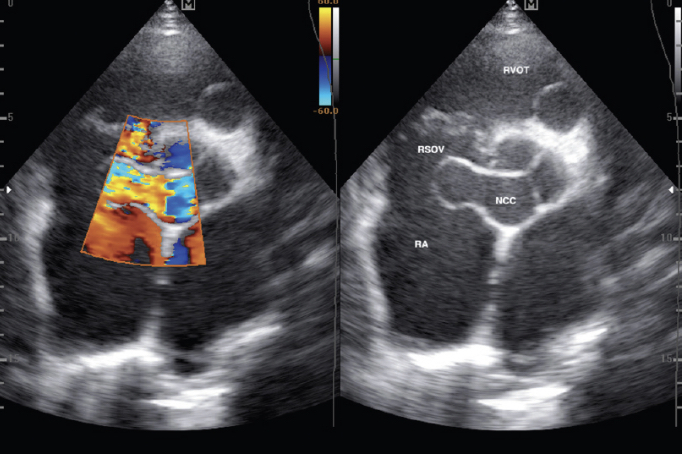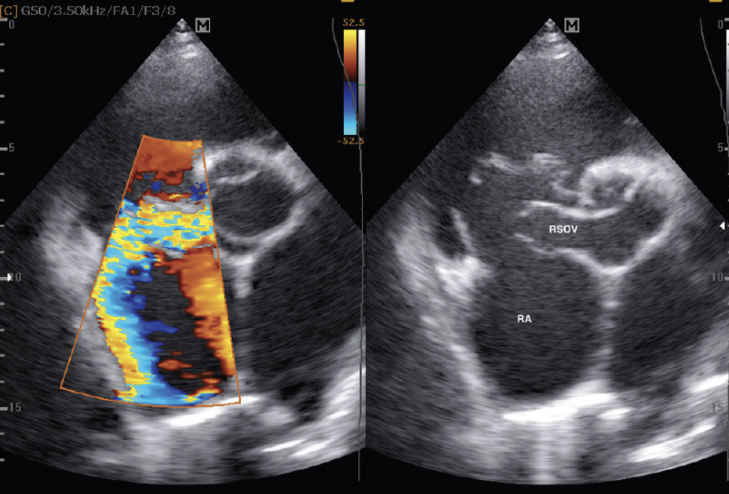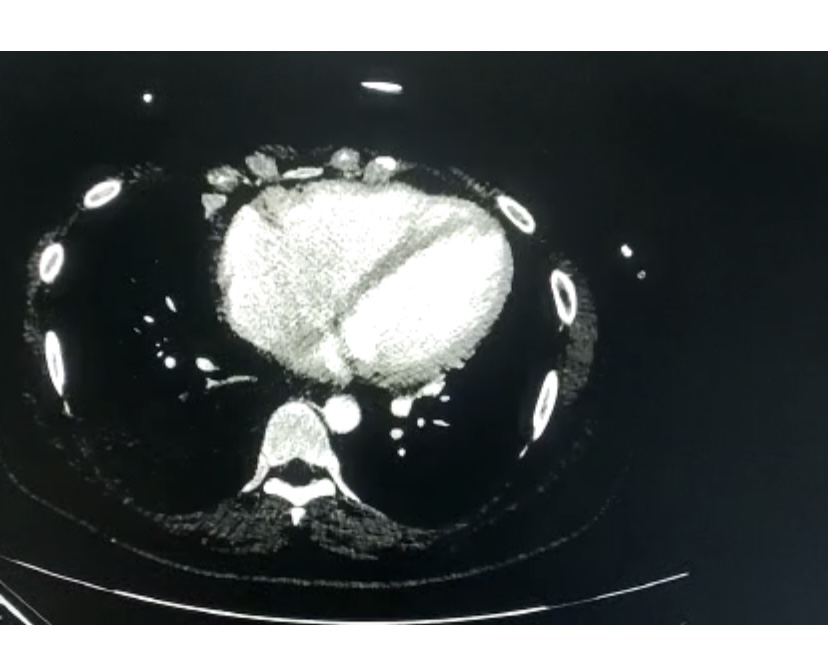CASE20220613_002
How Timely Intervention Saved a Precious Life.
By Siddharth Bajaj, Rajeev V. Menon
Presenter
Siddharth Bajaj
Authors
Siddharth Bajaj1, Rajeev V. Menon2
Affiliation
Apollo Hospitals, India1, AIG Hospitals, India2
Structural Heart Disease - Others (Structural Heart Disease)
How Timely Intervention Saved a Precious Life.
Siddharth Bajaj1, Rajeev V. Menon2
Apollo Hospitals, India1, AIG Hospitals, India2
Clinical Information
Patient initials or Identifier Number
KC
Relevant Clinical History and Physical Exam
29 years, male, BMI of 18, no co-morbiditiesPresented with sudden onset of worsening breathlessness and palpitations of 2 days durationOn examination, patient was dyspnoec, BP – 100/60 with a regular pulse rate of 100/min. He had pitting oedema of both his lower limbs, with a raised JVP– very high a and v waves with a steep y descent., and a continuous murmur over the precordium.
Relevant Test Results Prior to Catheterization
A transthorasicecho was performed which showed rupture of the non coronary sinus of Valsalva intothe Right Atrium.
His creatininewas 5.2 and rising rapidly, with a decreased urine output.



His creatininewas 5.2 and rising rapidly, with a decreased urine output.



Relevant Catheterization Findings
Right heart cath showed severe PVH with PAH and a Qp/Qs of 4:3
Interventional Management
Procedural Step
Procedure was done while the patient was on non invasive ventilation.RSOV was crossed with JR and exchange length terumo.
Case Summary
Post closurecath study –
Trans catheter closure of RSOV is a feasible and can be life saving, if done by experienced operators.
Trans catheter closure of RSOV is a feasible and can be life saving, if done by experienced operators.
